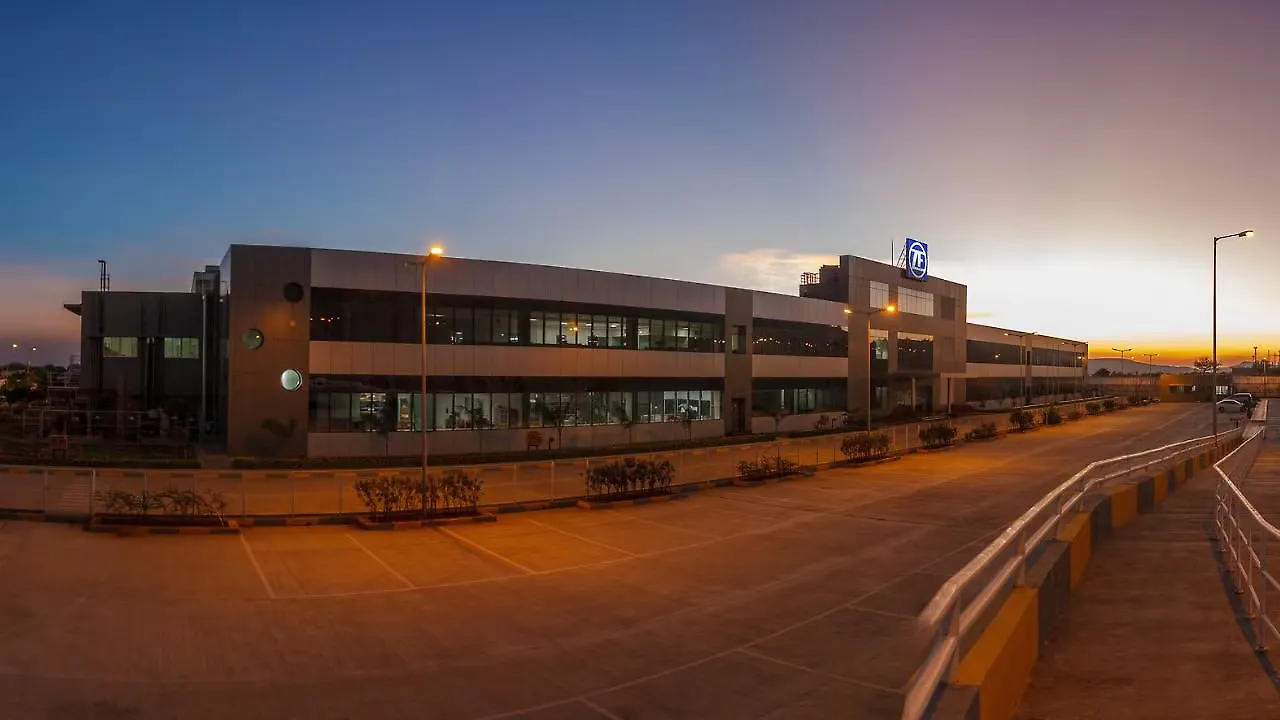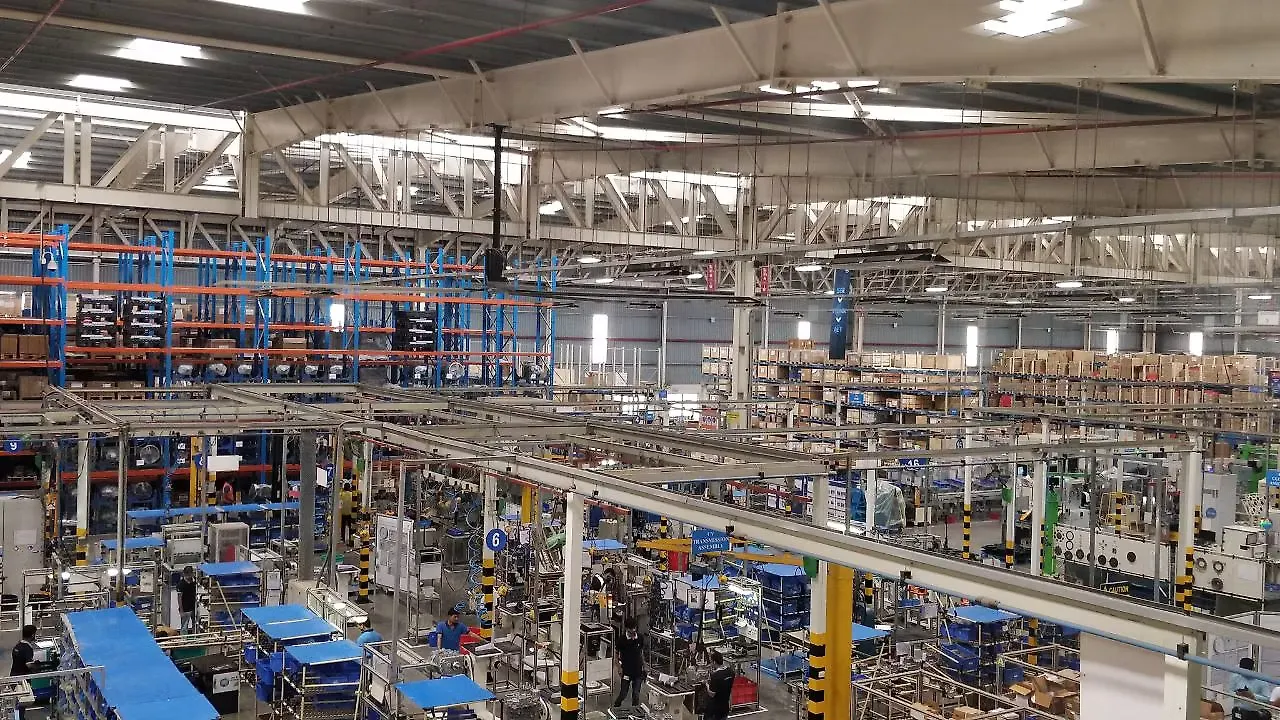
Akash Passey, President of ZF Group in India, wants the company to be the key partner for the OEMs in India. During the next five years, the company will engage with the top three OEMs in India in all the segments in which it operates. 'We would like that our scale set with them in terms of supplies is much higher than what we do today,' he said.
The company has identified key focus areas, including electric vehicles (EVs), active and passive safety, AI, and digitisation. 'To my knowledge, we are among the few manufacturers in India who are significantly ahead in these technologies compared to most of the value chain,' he mentioned.
Building On A Strong Foundation
According to Passey, the ZF brand, recognised globally for its excellence, has a solid presence in the Indian market, yet there remains immense growth potential. Therefore, his role is 'to build upon this foundation and propel the company to new heights.'
Like many multinational corporations, ZF has navigated a myriad of challenges, including strategic decisions regarding market entry and exit. Today, however, the company is resolutely focused on fortifying its position in India, aiming to become a premier supplier in the automotive sector. Beyond two-wheelers and three-wheelers, ZF's extensive involvement spans nearly every segment of the Indian automotive industry. This includes passenger cars, light commercial vehicles, medium and heavy trucks, buses, off-road and construction equipment, the tractor and rail industries, and industrial drives for heavy equipment, material handling, and windmills.
According to him, one of its significant achievements is its commercial vehicle operation with ZF Commercial Vehicle Control Systems India, where it has established a strong connection with customers holding a significant market share. It is continually striving to improve its presence in the passenger car segment.
Bridging Experiences
To accomplish these set objectives, his two-decade tenure at Volvo Group has been invaluable. Reflecting on his journey with an OEM for more than two decades, he noted that contributing to both the Indian market and on a global scale provided him with a unique perspective. From a business standpoint, being on the OEM side 'allowed me to understand the intricate processes and systems involved in procurement and design. This knowledge is immensely beneficial now that I am on the supplier side,' he said.
While OEMs are directly involved in creating the product, suppliers play a crucial role in the product's ecosystem. This shift is significant, as ZF manufactures a wide range of components, and its role is pivotal not only for the product's operation but also for ensuring safety. This responsibility reflects the importance of his previous work and underscores the continuity of his professional journey.

Today, OEMs expect suppliers to go beyond merely providing components; they seek comprehensive solutions that ensure seamless integration with other parts. This integration maximises efficiency and ensures the highest performance standards. At ZF, achieving seamless integration is a natural process, especially vital in an era of rapid technological advancements. 'Our ability to offer such integrated solutions is a key strength that will serve us well as we navigate these transformative times in the industry,' he added.
Capitalising On Market Shifts
Globally, ZF is a €46.6 billion company, comparable in size to many major OEMs. With 70% of its revenue derived from passenger vehicles (PVs) worldwide, the Indian arm recognises significant opportunities to strengthen its position in the Indian PV segment. Historically, the Indian market has been dominated by basic sub-four-meter vehicles, which comprised 50-60% of the market. However, recent trends indicate a shift towards SUVs, driven by safety regulations and the growing popularity of electric vehicles. These changes present an opportunity for ZF to introduce advanced technologies to its customers, a pursuit that 'we are actively engaged in,' he pointed out.

Aiming For Excellence Across All Operations
Drawing parallels from ZF India's windmill transmissions manufacturing division, which has gained global recognition with international customers specifically requesting them from this facility due to their quality, timely delivery, and performance, Passey views this as a testament to the exceptional standards the company upholds. He aims to replicate these standards across all operations. 'As we look to the future, ZF is committed to leveraging our global expertise to meet the evolving needs of the Indian automotive market. Our focus on innovation, quality, and customer satisfaction will continue to drive our growth and success in this dynamic landscape,' he said.
Embracing Change
Passey reiterated that the demand for SUVs continues to grow rapidly in an aspirational economy like India. This evolution will not slow down, driven by the population's desire for better safety, enhanced comfort, and superior features. This is just one facet of the transformative journey in the automotive industry.
A significant technological shift is also underway. For the first time, Indian OEMs are moving beyond retrofitting electric systems into vehicles designed for internal combustion engines (ICE). Now, almost all OEMs are developing dedicated platforms for electric vehicles (EVs) from the ground up. This technological change allows ZF India to offer enhanced features and content tailored to these new platforms. For example, 'we can now incorporate electric parking brakes in both PVs and CVs. There are options to integrate e-drives and Advanced Driver Assistance Systems (ADAS) into PVs, which are crucial for safety. Additionally, telematics is becoming a focal point for innovation,' he pointed out.
According to him, ZF India's strategy is to source, manufacture, engineer, and validate locally in India. By adhering to this principle, he believes that the company can better align with its customers' specific needs and contribute to the technological advancement of the Indian automotive sector. This local approach ensures it remains close to its customers, providing them with the best solutions tailored to their evolving requirements.
Today, thanks to significant improvements in road infrastructure, OEMs are introducing new features that were not previously considered. Additionally, customers now demand these features and are willing to pay for them if they see value, a shift from earlier times. This transition is significant, prompting OEMs to cater not only to the Indian market but also to global markets by leveraging a lower cost base. Vehicle manufacturers are adopting a modular concept to achieve global reach, and supporting this approach becomes a natural choice for ZF. Therefore, the company is well-positioned to meet these emerging demands, he asserted.
Also Read:
ZF Rane Automotive India Expands Its Reach With TRW Sun Steering Wheels Acquisition